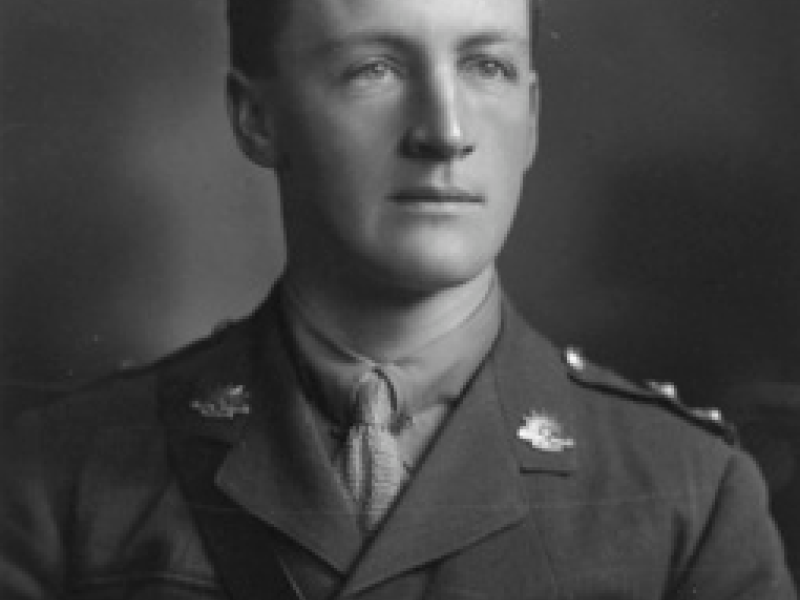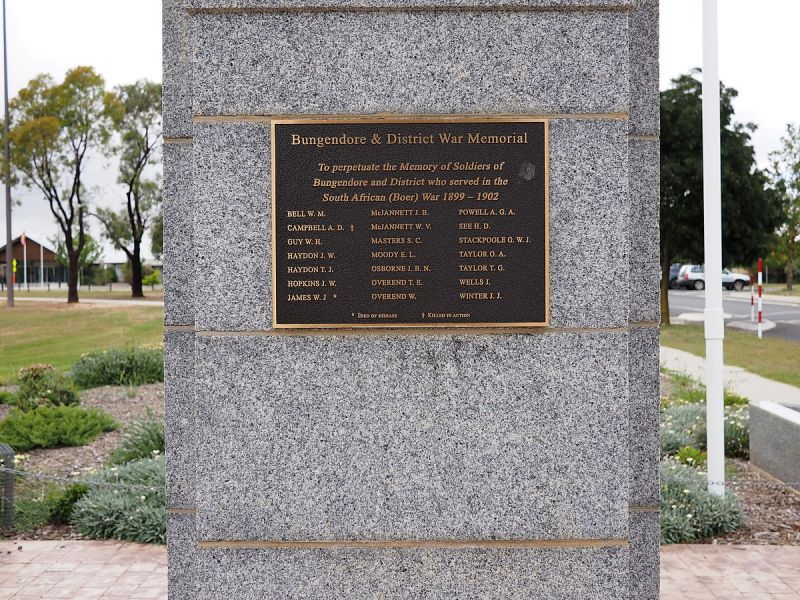Lieutenant Harry Forster Rutledge, 7th Brigade, Australian Field Artillery
Harry Rutledge was born in 1891 to William Forster Rutledge and his wife Jane Ruth, nee Morphy. The Rutledges were a prominent grazing family from Bungendore in New South Wales and his grandfather had been one of the first settlers in the district.
Known as “Pat”, he was educated at the King’s School, Goulburn, and the King’s School, Parramatta. He was a good athlete, excelling in shooting, cricket and football.
After finishing school, he returned to work on the family property, “Gidleigh”.
Rutledge’s older brother, Tom, had enlisted with the 7th Light Horse Regiment not long after war had been declared, and served as an officer on Gallipoli. Pat was also eager to enlist but was delayed until December 1915 because he was recovering from a farm accident: a gun had discharged in his hand and he had lost a finger.
He joined the 17th Battalion but within a few months had moved to the 7th Australian Field Artillery Brigade. He embarked for active service overseas in May 1916, travelling first to England before proceeding to France, arriving in the new year of 1917.
Rutledge was promoted to lieutenant in March 1917, and enjoyed a brief period of leave in Paris during late June and early July.
On the 9th of October 1917, the 7th Field Artillery Brigade was supporting the Australian 2nd Division’s attack near the small Belgium village of Passchendaele. It was part of the main British offensive in Belgium that year, known as the Third Battle of Ypres.
Rutledge was acting as the forward observing officer for his brigade’s 107th Howitzer Battery on the morning of the 9th when he was hit by a shell and killed instantly.
In a report on his death, Major Marfell, the officer commanding the 107th Howitzer Battery, said: “He was a fine soldier and when he went the battery suffered a serious loss. I miss him personally very much as he was my right hand man and a solid friend.”
Marfell reported that Rutledge was buried “near a place called Tyne cottage by the Battery telephonists”. His grave is at Dochy Farm New British Cemetery in Belgium.
He was 26 years old.
Harry Rutledge’s family continued to serve during the war. His brother Tom was the officer commanding the Pioneer Training Battalion, and was mentioned in despatches while serving in France with the 2nd Pioneer Battalion. From April 1918, Tom Rutledge commanded the 4th Pioneer Battalion and was confirmed as lieutenant-colonel about a month before the war ended.
Harry Rutledge’s aunt, Alice Chisholm, was made a Dame for her war work: from 1916 she established soldiers’ canteens throughout Egypt and Sinai-Palestine that nurtured and fed hundreds of thousands of men of the Egyptian Expeditionary Force.
Emma Campbell, Researcher, Military History Section

 Australian War Memorial
Australian War Memorial